Table Of Contents
Investing in an air conditioner is crucial for any homeowner, but understanding the costs involved is equally essential. In this article, we will break down the key considerations and factors that influence the cost of air conditioners, providing a comprehensive guide to help you make informed decisions about your cooling needs.
Whether you’re looking for a window unit, split system, or central air conditioning, understanding the nuances of pricing is essential for budget-conscious consumers and those seeking optimal performance and efficiency. Read on to learn more!
Types of Air Conditioners
Window air conditioners
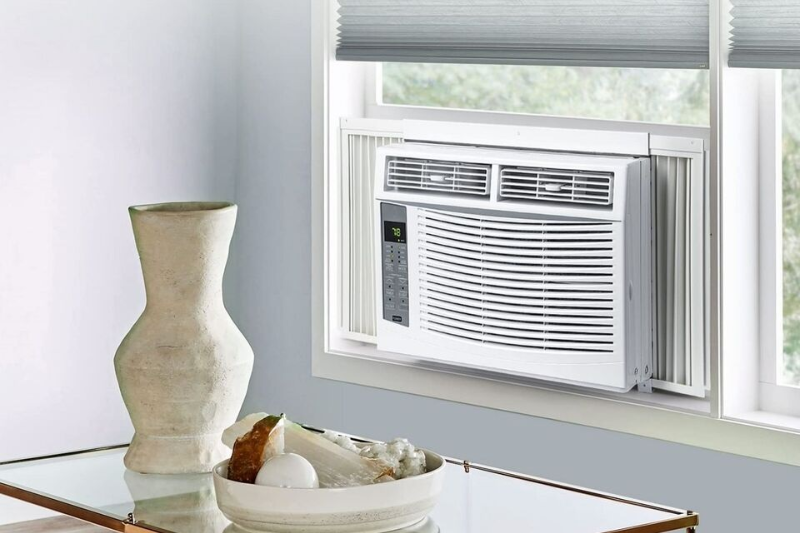
Window air conditioners, also known as box air conditioners due to their shape, are budget-friendly options suitable for cooling single rooms. With a relatively low initial cost, these units are easy to install, making them popular for small residential spaces or apartments.
Split air conditioners
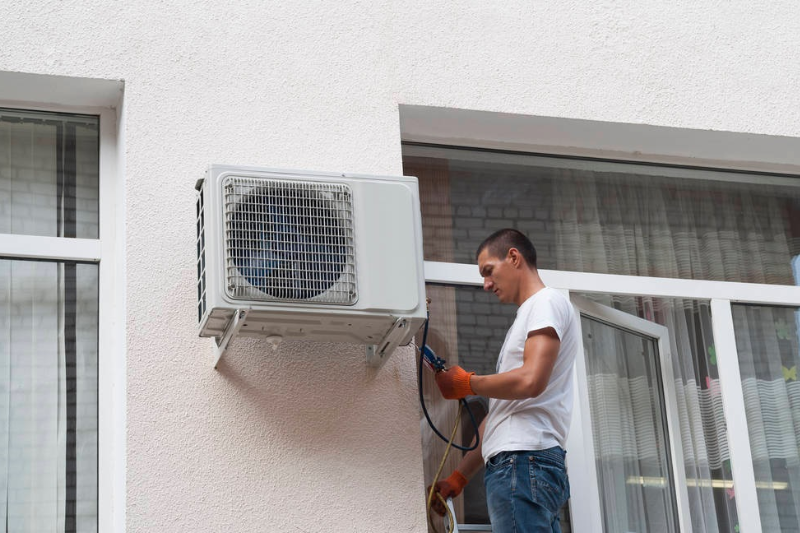
Split system air conditioners offer more flexibility, consisting of indoor and outdoor components. While they come with a higher upfront cost, they provide efficient cooling for larger commercial spaces and offer the advantage of zoning, allowing you to cool specific areas.
Portable air conditioners
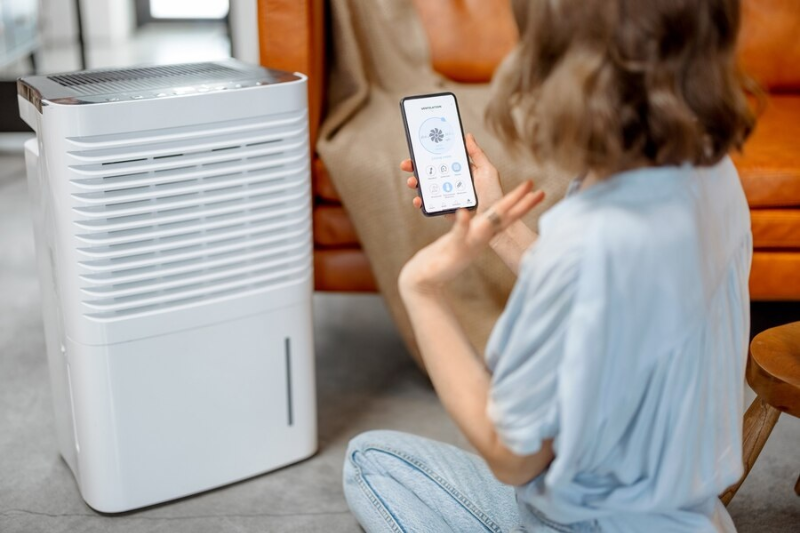
Ideal for those who require a mobile cooling solution, portable AC units are versatile and easy to install. However, their cooling capacity may be limited compared to other types, and they are generally less energy-efficient.
Ductless mini-split systems
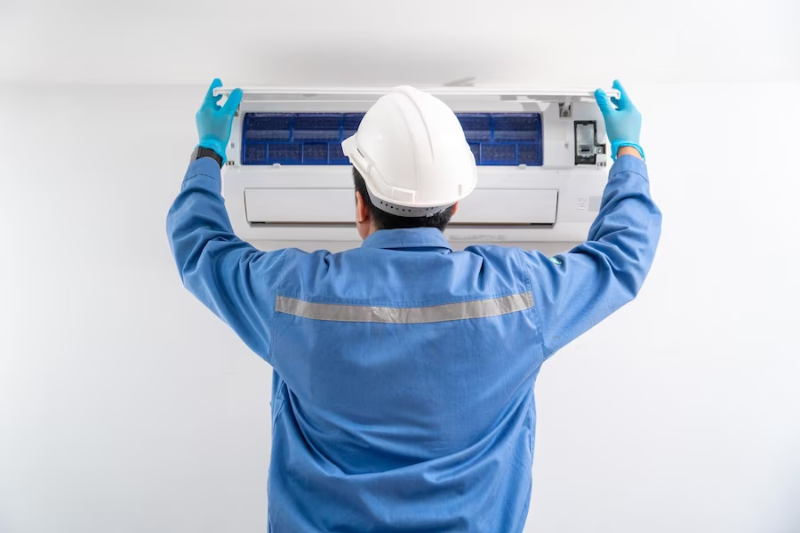
Unlike the ducted air conditioners, a ductless mini split system provides zoned cooling without requiring ductwork. Although the initial cost is higher, they offer energy efficiency and flexibility in temperature control for different zones within your home.
Central air conditioning systems
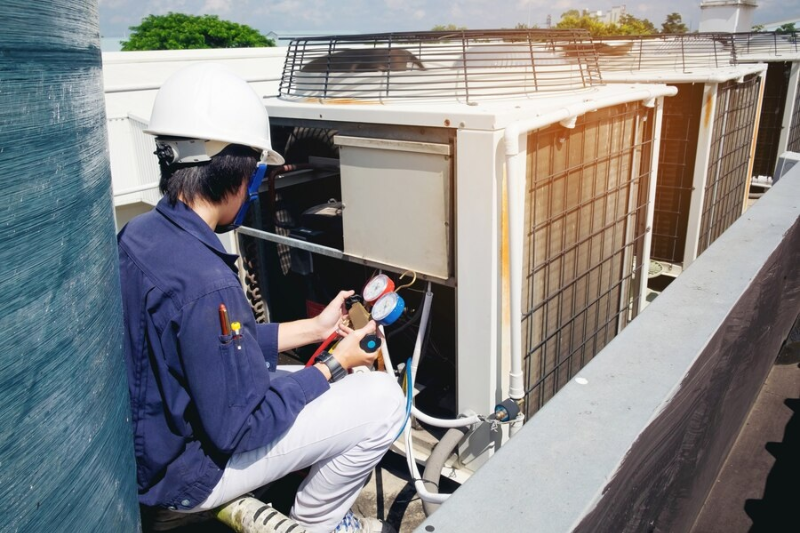
Central air conditioners are designed to cool entire homes efficiently. With a higher initial investment, they provide even cooling throughout the house and are often preferred for larger living spaces.
Factors Influencing Cost
Cooling capacity
The cooling capacity of an air conditioner directly impacts its cost. Choosing the suitable accommodation for your space ensures optimal performance and energy efficiency.
Energy Efficiency Rating (EER)
The EER of an air con determines its energy efficiency. Units with higher EER ratings may cost more initially but can result in significant long-term savings through reduced energy consumption.
Brand and model
Well-known brands and models often come with a premium price tag. However, they may offer better reliability, advanced features, and improved customer support.
Installation requirements
Installation requirements vary depending on the complexity of the installation process. Factors such as the type of unit, existing infrastructure, and any necessary modifications can impact overall expenses.
Additional features and technology
Advanced features like smart thermostats, air purifiers, and energy-saving technologies can add to the cost. Assessing the necessity of these features is crucial in determining the suitable unit for your needs.
Initial Purchase Costs
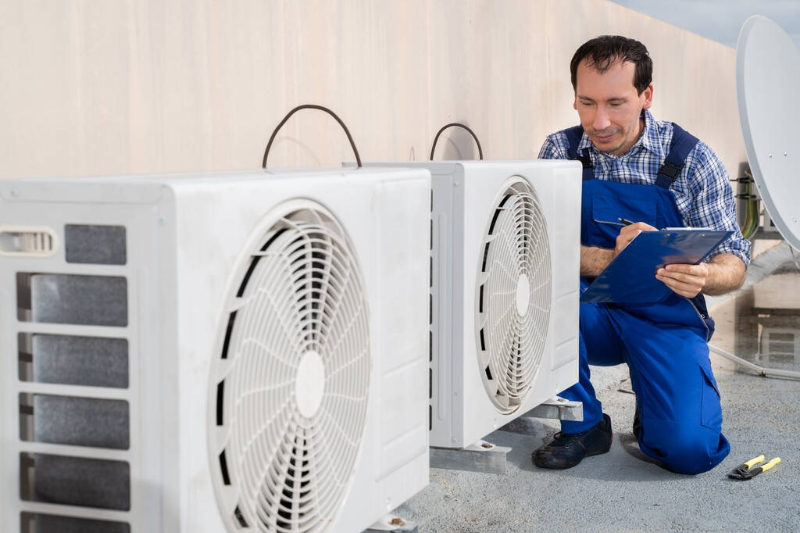
Unit cost by type
Window units and portable ACs are generally more affordable, while central system air conditioners and ductless mini-splits come with a higher initial cost. Understanding your budget constraints is essential when selecting a unit.
Installation costs
This varies based on the complexity of the installation, labour rates, and additional materials needed. Obtaining multiple quotes from reputable installers can help you make an informed decision.
Optional add-ons and accessories
Optional add-ons like programmable thermostats, air purifiers, and extended warranties can contribute to the cost. Evaluate the necessity of these add-ons based on your specific requirements.
Extended warranties
While extended warranties provide peace of mind, they add to the upfront cost. Consider the reliability of the brand and the included standard warranty before deciding on an extended warranty.
Sales and promotions
Seasonal promotions, discounts, and manufacturer rebates can significantly impact air conditioning costs. Timing your purchase to coincide with these promotional periods can lead to substantial savings.
Operating and Maintenance Costs
Energy efficiency and operational costs
Investing in an energy-efficient unit may result in higher upfront costs. However, reduced energy consumption can lead to substantial savings over the unit’s lifespan.
Routine maintenance expenses
Regular maintenance, including filter replacements and professional servicing, is essential for optimal performance. Budgeting for routine maintenance helps prevent unexpected repair costs.
Filter replacement costs
Air filters need regular replacement to maintain air quality and system efficiency. Factoring in the cost of replacement filters is crucial for long-term budget planning.
Professional servicing fees
While DIY maintenance is an option, professional air conditioning servicing may be necessary for complex issues. Budgeting for occasional professional servicing helps address potential problems before they escalate.
Potential repair costs
Unforeseen breakdowns or malfunctions may incur repair costs. Setting aside a budget for potential repairs ensures you are financially prepared for unexpected issues.
Financing and Payment Options
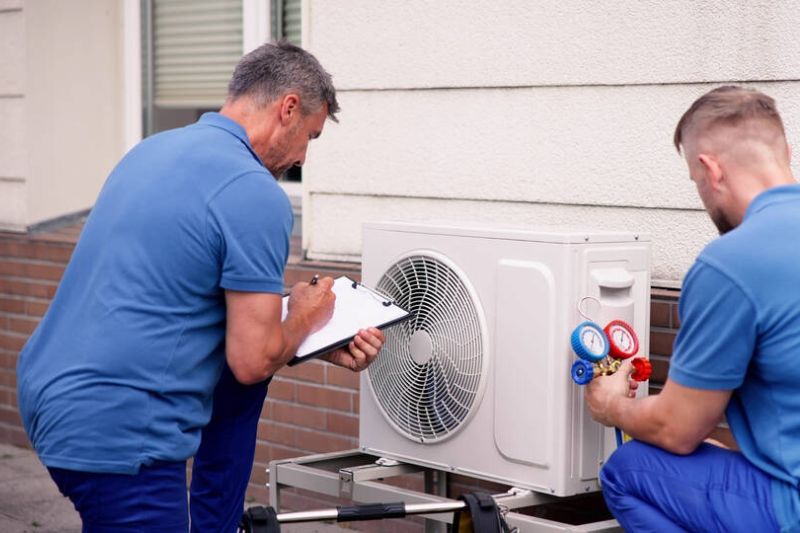
Upfront payment
Paying for your air conditioner upfront eliminates the need for financing, but it may not be feasible for everyone. Assess your finances to determine the most suitable payment option.
Monthly financing plans
Many retailers and manufacturers offer financing plans, allowing you to spread the cost of your air conditioner over several months. Consider the interest terms before opting for a financing plan.
Lease or rent-to-own options
Leasing or rent-to-own programs provide flexibility in acquiring an air conditioner without a significant upfront investment. However, the total cost over the lease period may be higher than purchasing outright.
Government rebates and incentives
Explore government rebates and incentives for energy-efficient air conditioners. These programs can offset your initial costs, making environmentally friendly options more financially appealing.
Manufacturer financing programs
Some manufacturers offer financing programs at competitive rates. Researching and comparing these programs can help secure favourable terms for your air conditioner purchase.
Considerations for Long-Term Savings
Energy-efficient models
Opting for an energy-efficient model may increase initial costs but lead to substantial long-term savings through reduced energy consumption.
Smart thermostats and home automation
Investing in smart thermostats and home automation can enhance energy efficiency, providing long-term savings through optimised temperature control and scheduling.
Proper sizing for space
Selecting the right size air conditioner for your space ensures efficient cooling and prevents unnecessary energy consumption. Oversized or undersized units can lead to increased operating costs.
Regular maintenance practices
Routine maintenance is crucial for preserving the efficiency of your air conditioner. Implementing regular maintenance practices can extend the lifespan of your unit.
Energy-efficiency tax credits
Explore available tax credits for energy-efficient air conditioners. Taking advantage of incentives can result in significant savings when filing your annual tax return.
Price Comparison Tips
Researching multiple brands and models
Comparing various brands and models allows you to decide based on performance, features, and customer reviews.
Obtaining multiple quotes from installers
Requesting quotes from multiple installers helps you identify competitive pricing and ensures you are not overcharged for installation services.
Considering energy efficiency and operating costs
Consider the long-term benefits of energy efficiency. A slightly higher upfront investment in an energy-efficient unit can yield substantial savings over time.
Exploring seasonal discounts and promotions
Timing your purchase to coincide with seasonal discounts and promotions can result in significant cost savings. Keep an eye on sales events and manufacturer promotions.
Negotiating installation costs
Don’t hesitate to negotiate installation costs with installers. Seeking multiple quotes and negotiating can help you secure a reasonable price for installation services.
Hidden Costs and Potential Savings
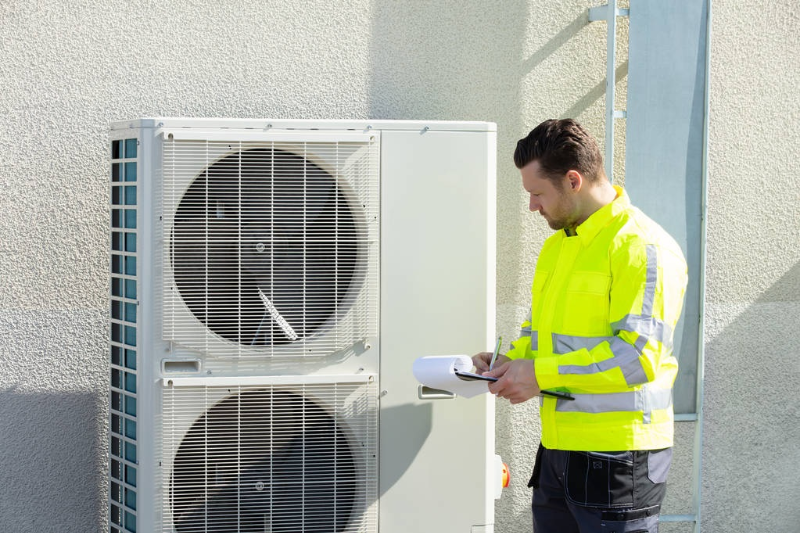
Electrical upgrades
Depending on your existing electrical system, you may need upgrades to support a new air conditioner. Factoring in potential electrical upgrades prevents unexpected costs during installation.
Ductwork modifications
Existing ductwork may need modifications for ducted air conditioning to ensure optimal performance. Understanding the potential need for ductwork modifications helps you budget accordingly.
Permits and local regulations
Check local regulations and permit requirements for air conditioner installation. Obtaining necessary permits ensures compliance with local codes and prevents potential fines.
Utility rebates and incentives
Some companies offer rebates and incentives for installing energy-efficient air conditioners. Researching available programs helps you take advantage of potential savings.
Future energy savings
Consider the long-term energy savings associated with energy-efficient units. While the running cost may be higher, the ongoing energy savings can offset the initial investment over time.
Environmental Considerations
Energy star certification
Air conditioners with Energy Star certification meet strict energy efficiency guidelines. Choosing an Energy Star-certified unit also results in long-term energy savings.
Refrigerant types and environmental impact
Evaluate the environmental impact of the refrigerant used in your air conditioner. Opting for units with environmentally friendly refrigerants contributes to sustainability efforts.
Sustainable cooling options
Explore sustainable cooling options, such as solar-powered air conditioners or geothermal systems. While the initial costs may be higher, these eco-friendly alternatives can offer long-term environmental and financial benefits.
End-of-life disposal costs
Consider the disposal costs of your old air conditioner. Some jurisdictions may charge fees for proper disposal, so budgeting for these costs is essential when upgrading your unit.
Green building certification requirements
If pursuing green building certifications, ensure that your chosen air conditioner meets the necessary environmental standards. This ensures alignment with sustainable building practices.
Make the Right Cooling Choice Today
Take the first step towards comfort and savings. Choose the perfect air conditioner by considering the factors discussed in this guide. Whether it’s understanding the types, calculating costs, or exploring eco-friendly options, make an informed decision and contact professional HVAC contractors whose costs align with your budget and preferences.



